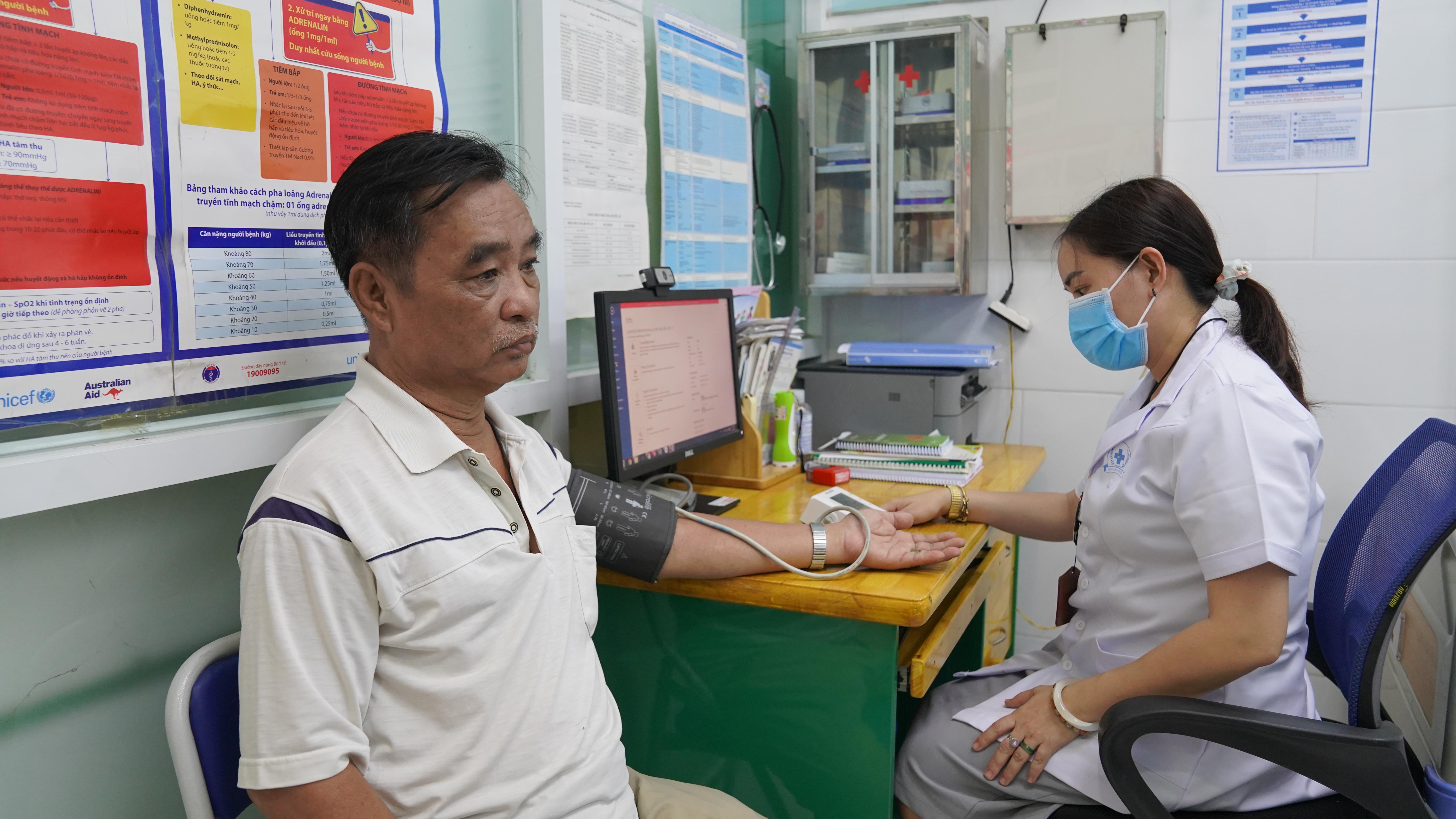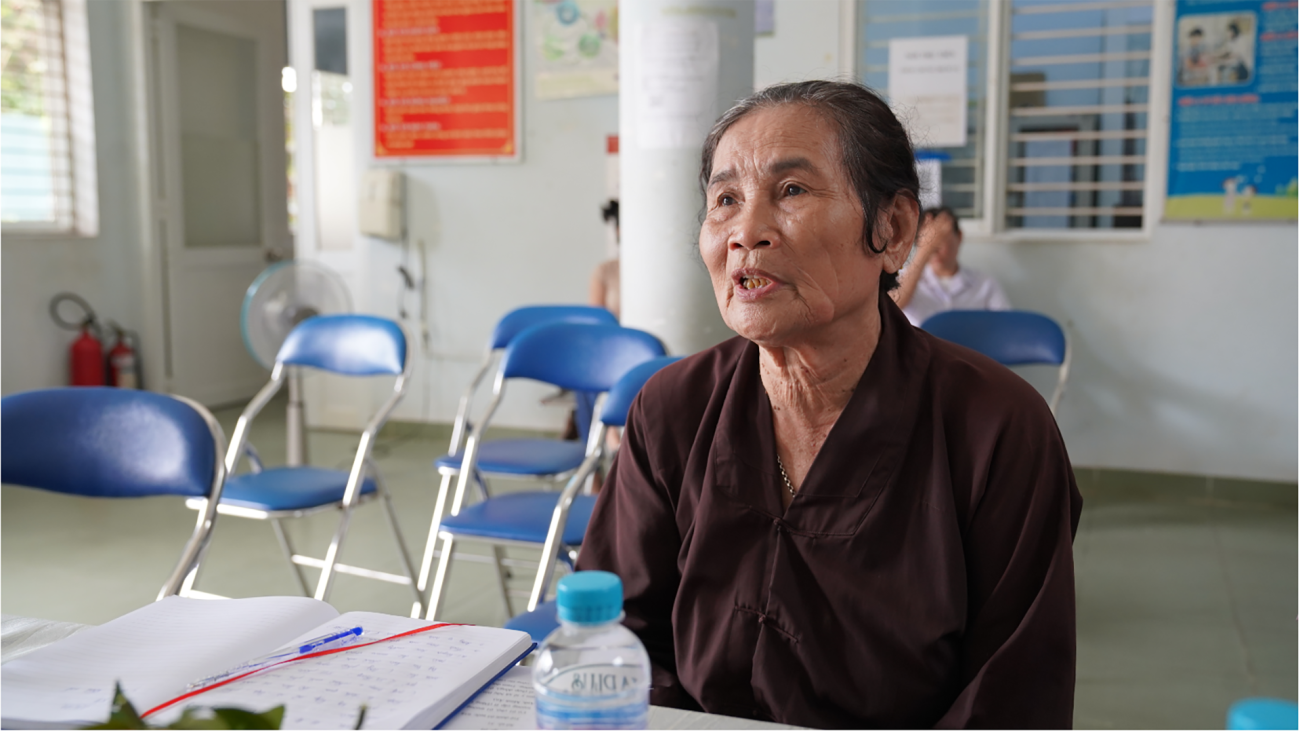Early detection and timely treatment are the key to successfully managing NCDs such as hypertension and diabetes. This requires proactive community-based testing and long-term treatment to manage conditions.
In Viet Nam, NCDs are responsible for 80% of deaths. NCDs are a growing and significant health challenge, with many people living with undiagnosed conditions. An estimated 75% of people with hypertension or diabetes are not being treated.
Due to the Government’s focus on improving the quality of primary health care services, millions of people living with NCDs in Ho Chi Minh City are now able to access NCD prevention and care at commune health stations close to where they live.
The Ministry of Health implemented a project supported by WHO, through the UHC Partnership, and an NGO, the Resolve to Save Lives to develop and implement an NCD management model and improve quality of care at commune health stations.
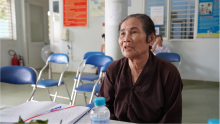
At times, a trip to the district health centre would take me almost a day just to get checkup, consultation, and medicines, but now it only takes a short while here and the station is just half a kilometre away from my home. Due to my age, being able to get my medicines and health checkup here at the commune health station is greatly appreciated.
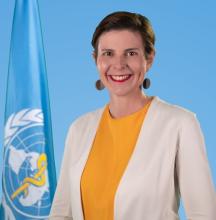
Viet Nam’s health system is at a critical juncture: a rapidly ageing population, a shifting disease burden – including the rising tide of NCDs – as well as a fast-developing economy – are all creating increased demand for high quality health services.
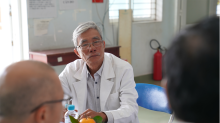
Commune health stations serve as the bridge between community members and the health system. We know our patients very well, not only their health conditions but also on a personal level. We know their families and understand exactly what triggers each patient’s condition, such as their drinking, smoking or sleeping habits.

It is important to create a stronger and more integrated primary health care system to help meet essential health needs for all. We are very proud to collaborate with the Ministry of Health, local health authorities and health partners, with the support of Resolve to Save Lives and the UHC Partnership, to strengthen hypertension and diabetes management in primary health care, so that people can be screened and treated for their conditions in a timely way.
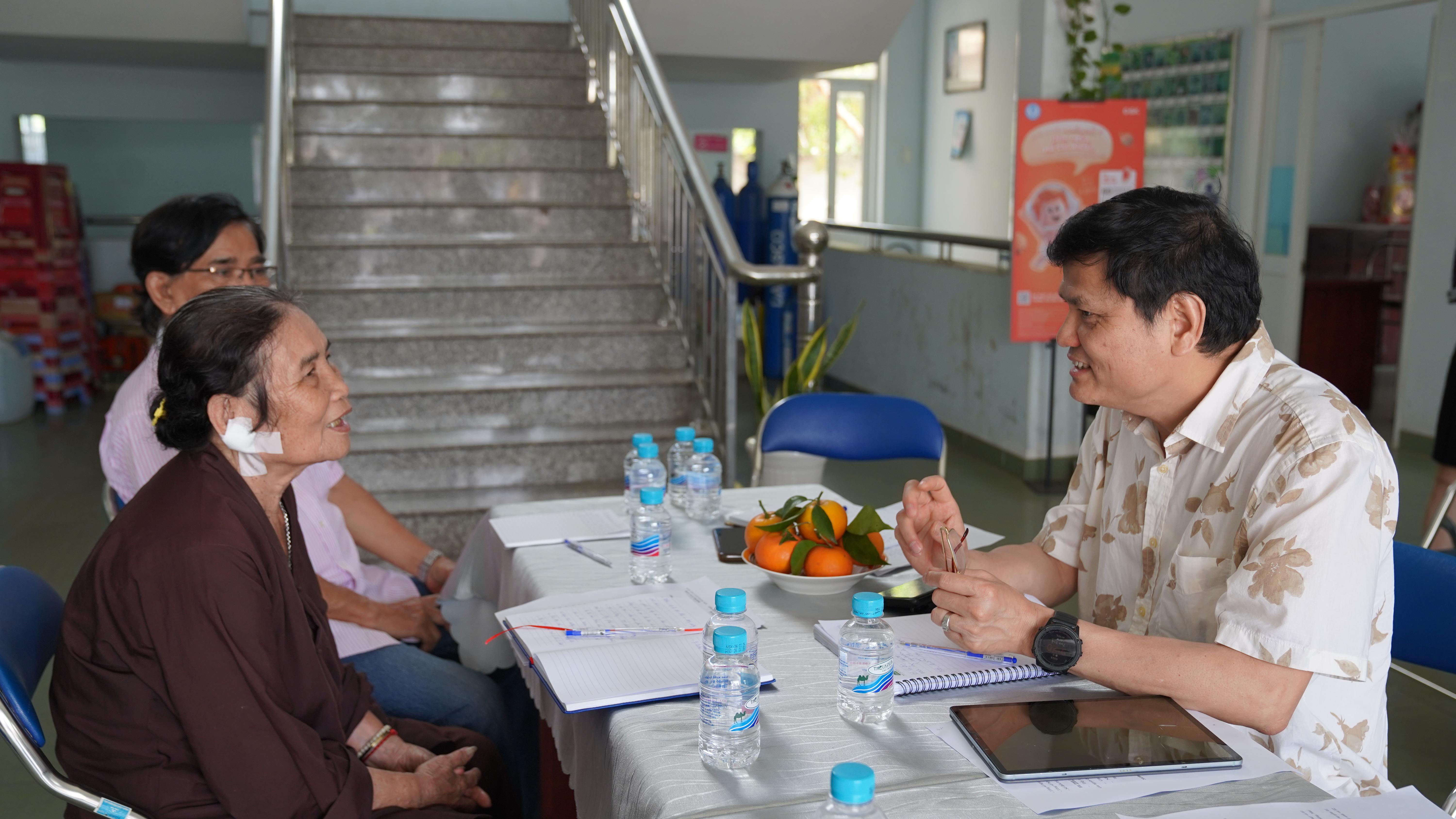
On an intensely hot day in early 2024, Doan Thi Hien, 77, walked into Nhi Binh commune health station in Ho Chi Minh City, not far from where she lived.
Following her hypertension diagnosis nearly two decades ago, Ms Hien had previously needed to ask her son or daughter-in-law for help to travel more than 10 kilometres to the Hoc Mon district health centre.
But now Ms Hien, for the first time, can get a health check-up and pick up her medicines in her own neighbourhood.
"At times, a trip to the district health centre would take me almost a day just to get checkup, consultation, and medicines, but now it only takes a short while here and the station is just half a kilometre away from my home. Due to my age, being able to get my medicines and health checkup here at the commune health station is greatly appreciated" said Ms Hien
Since late 2022, a project supported by WHO, through the UHC Partnership, and an NGO, the Resolve to Save Lives (RTSL), is bringing essential PHC closer to Ms Hien and millions of people living with noncommunicable diseases (NCDs) in Ho Chi Minh City.
The work focuses on improving the quality of care at PHC for NCDs across the City and has learnt lessons from an earlier project that took place across nearly all provinces in Viet Nam. WHO, through the UHC Partnership and RTSL, supported the Ministry of Health to develop and implement an NCD management model from 2016-2022. This included simple protocols, and an online reporting system to monitor the progress of individuals aggregating data from community to national levels.
The UHC Partnership operates in over 125 countries, representing over 3 billion people. It is supported and funded by Belgium, Canada, the European Union, France, Germany, Ireland, Luxembourg, Japan, the United Kingdom of Great Britain and Northern Ireland, and WHO.
Around the world, NCDs including heart disease, stroke, cancer, diabetes and chronic lung disease, kill 41 million people each year, equivalent to almost three out of every four deaths globally.
In Viet Nam, NCDs are responsible for 80% of deaths. The country has made great improvements in mother and child health and reducing infectious diseases like malaria and tuberculosis, but NCDs are a growing and significant health challenge, with many people living with undiagnosed conditions. An estimated 75% of people with hypertension or diabetes are not being treated.
Rates of NCDs have been rising dramatically in Viet Nam over the past few years, making this problem an even more pressing one to address. Between 2015 and 2021, the prevalence of hypertension among adults in Viet Nam rose from about 1 in every 5 people to more than 1 in 4 people. In the same period, the prevalence of diabetes increased from 1 in every 24 people to 1 in 14 people.
“Viet Nam’s health system is at a critical juncture: a rapidly ageing population, a shifting disease burden – including the rising tide of NCDs – as well as a fast-developing economy – are all creating increased demand for high quality health services,” said Dr Angela Pratt, WHO Representative in Viet Nam.
Early detection and timely treatment are the key to successfully managing NCDs. However, many people living with NCDs may not be showing any symptoms until the disease has substantially progressed. One way to help address this challenge, is proactive community-based testing and long-term treatment.
From 2016, WHO worked with the Ministry of Health to develop a new NCD Management Model at PHC level. From 2019, WHO, through the UHC Partnership and the RTSL, collaborated further with the Ministry of Health and public health institutes to support 52 of the country’s 63 cities and provinces to adopt protocols and tools to implement the model of NCD management at PHC facilities.
Health care workers at commune health stations received training using WHO-supported training packages and tools including a simple protocol for hypertension and diabetes management, and an online NCD reporting system for tracking progress.
The monitoring generates aggregated reports at commune, district, province, and national levels, which now automatically feeds into local and national databases. Currently more than 5 000 commune health stations use the system regularly, providing the Ministry of Health with critical data to inform policy decisions.
WHO has long advocated support for addressing barriers to NCD management at PHC level. Integrating NCD management into PHC boosts NCD prevention, reduces the cost of treatment and minimizes complications such as heart attacks, strokes, amputations and blindness. This integrated approach brings healthcare closer to those who need it, making better use of health system resources and helping people to become healthier.
Ho Chi Minh City is Viet Nam’s largest city with more than 9 million inhabitants (before merging with two other provinces in July 2025). Having strong primary healthcare facilities near people's homes enables healthcare workers to provide more frequent and timely support. They can then offer advice on lifestyle factors such as smoking, exercise, alcohol consumption and diet, which can ultimately help to prevent, delay or manage NCDs. Doctors recognise the importance of having this care provided in the heart of the community.
“Commune health stations serve as the bridge between community members and the health system. We know our patients very well, not only their health conditions but also on a personal level. We know their families and understand exactly what triggers each patient’s condition, such as their drinking, smoking or sleeping habits,” said Dr Pham Van Nghia from the Nhi Binh commune health station.
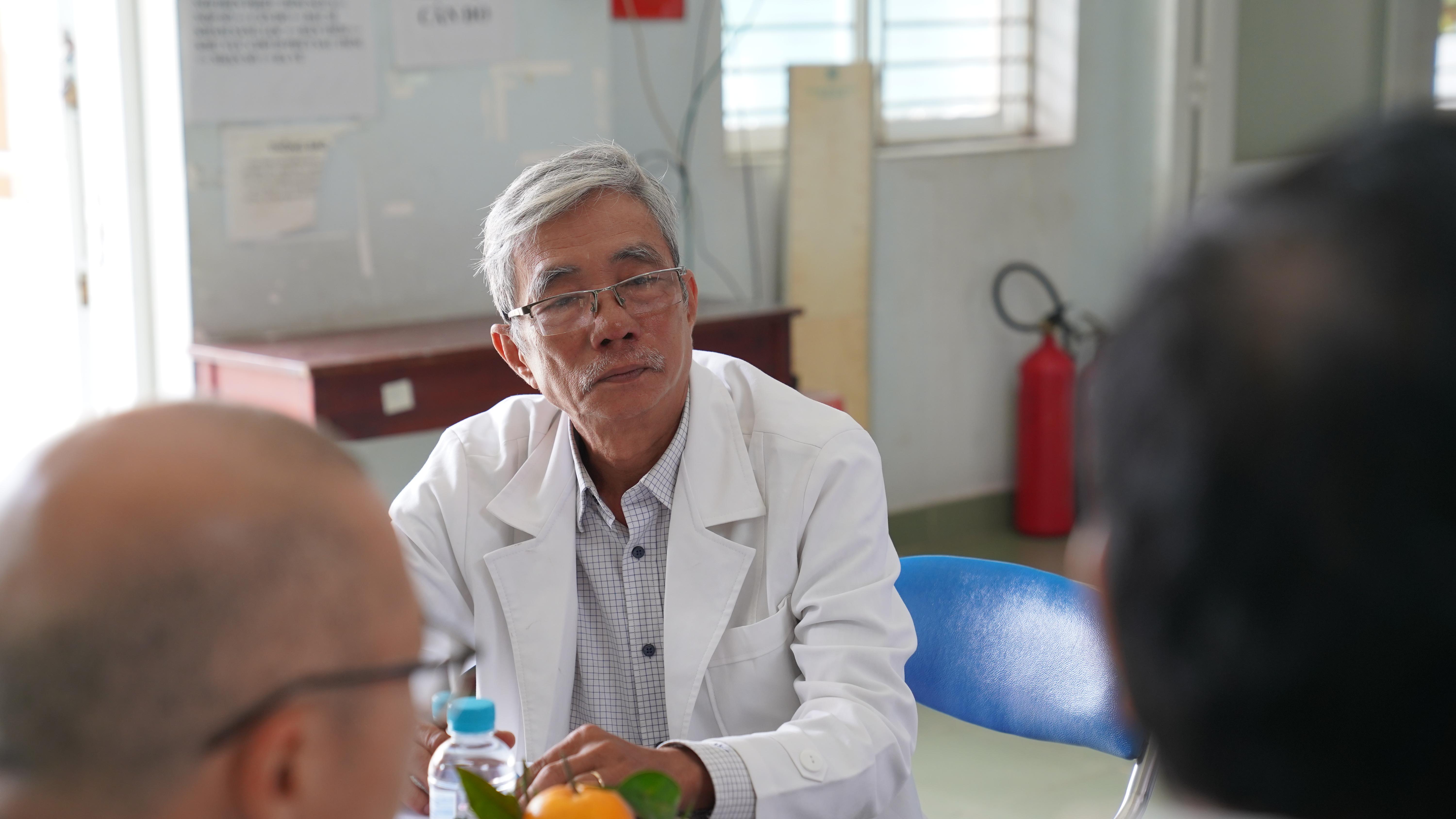
Providing NCD management at commune health stations in Ho Chi Minh City is challenging because people tend to choose of private clinics and hospitals, where quality of care is perceived to be better. However, private facilities are expensive and can be located far away from people’s homes. To ensure that people choose to go to their local commune health station for NCD management, the focus of the work was on improving the quality of care at these stations. The model now provides PHC for those who previously travelled long distances to get to hospitals, and for those who cannot afford to pay for private services.
Since late 2022, 43 out of 310 commune health stations and 10 of 22 district health centres benefited from taking part in the project. In 2024, the model began to be rolled out to the remaining commune and district health care facilities in Ho Chi Minh City, before being scaled up to the entire country. By June 2025, the project had reached about 180 of 273 commune health stations (commune health stations were merged to reduce the number from 310 to 273) in 11 of 22 districts of HCMC.
Between February 2023 and January 2024, the number of hypertension patients visiting commune health stations nearly doubled, and the number of diabetes patients increased nearly 4 times. With focus on better grassroots care, 20% more patients had controlled blood pressure, and 56% more patients had controlled blood glucose. There has also been improvement in essential medicine supply, with more commune health stations having enough supply of the three types of hypertension and two types of diabetic medicines.
“It is important to create a stronger and more integrated primary health care system to help meet essential health needs for all. We are very proud to collaborate with the Ministry of Health, local health authorities and health partners, with the support of Resolve to Save Lives and the UHC Partnership, to strengthen hypertension and diabetes management in primary health care, so that people can be screened and treated for their conditions in a timely way,” said Dr Angela Pratt, WHO Representative in Viet Nam.
With success in Ho Chi Minh City, future plans for the initiative include improving quality of hypertension and diabetes management at all commune health stations across the country and integrating care for other chronic conditions such as depression, HIV/AIDS, chronic obstructive respiratory disease and asthma. This will make a significant difference in bringing care closer to home and improving the quality of life for millions of people across the country.
